News
-
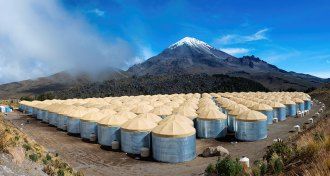 Particle Physics
Particle PhysicsExcess antielectrons aren’t from nearby dead stars, study says
Pulsars might not be behind excess antimatter, gamma-ray observations suggest.
-
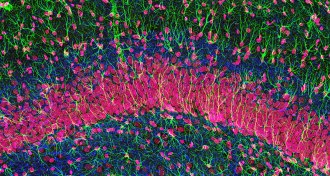 Neuroscience
NeuroscienceStudy casts doubt on whether adult brain’s memory-forming region makes new cells
An examination of 54 human brains suggests that adults don’t grow new neurons in the hippocampus, contrary to several widely accepted studies.
-
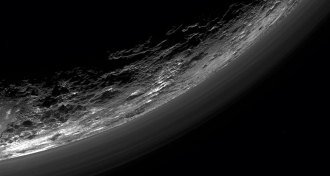 Astronomy
AstronomyHaze keeps Pluto cool by kicking heat out to space
Pluto may be the only place in the solar system whose atmosphere is kept cool by solid hazes, not warmed by gas.
-
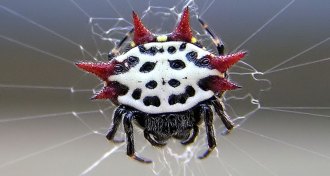 Animals
AnimalsThese spiders may have the world’s fastest body clocks
Three orb-weaving spiders may have the shortest circadian clocks yet discovered among animals.
-
 Health & Medicine
Health & MedicineNew blood pressure guidelines put half of U.S. adults in unhealthy range
New hypertension guidelines broaden the range of those considered to have high blood pressure and emphasize lifestyle changes to combat the condition.
-
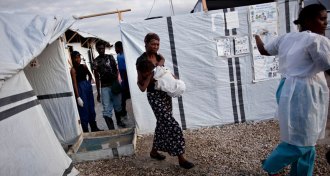 Health & Medicine
Health & MedicineCholera pandemics are fueled by globe-trotting bacterial strains
International cholera strains, rather than local ones, have caused raging epidemics, according to research that examined the bacteria’s DNA.
-
 Physics
PhysicsWhy the wiggle in a crowd’s walk can put a wobble in a bridge
New simulations can better predict when pedestrians cause a bridge to shimmy.
-
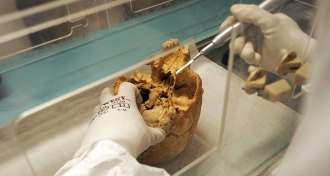 Anthropology
AnthropologyAncient European farmers and foragers hooked up big time
Interbreeding escalated in regionally distinct ways across Neolithic Europe.
By Bruce Bower -
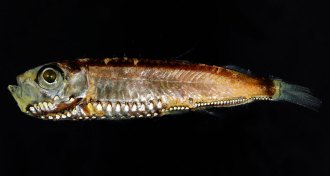 Animals
AnimalsThis deep-sea fish uses weird eyes to see in dark and light
The eyes of deep-sea fish called pearlsides contain cells that look like rods but act like cones.
-
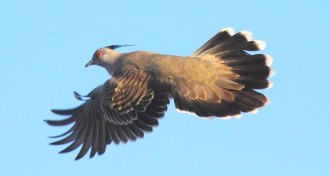 Animals
AnimalsCrested pigeons sound the alarm with their wings
Crested pigeons have specialized feathers that signal danger when they flee from an apparent threat.
-
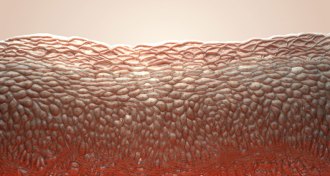 Genetics
GeneticsScientists replaced 80 percent of a ‘butterfly’ boy’s skin
By correcting genes in stem cells and growing new skin in the lab, a new therapy repaired a genetic skin disease.
-
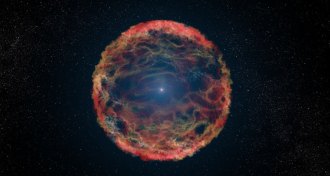 Astronomy
AstronomyThis star cheated death, exploding again and again
The weirdest supernova ever has lasted more than three years, and may be the third outburst from the same star.